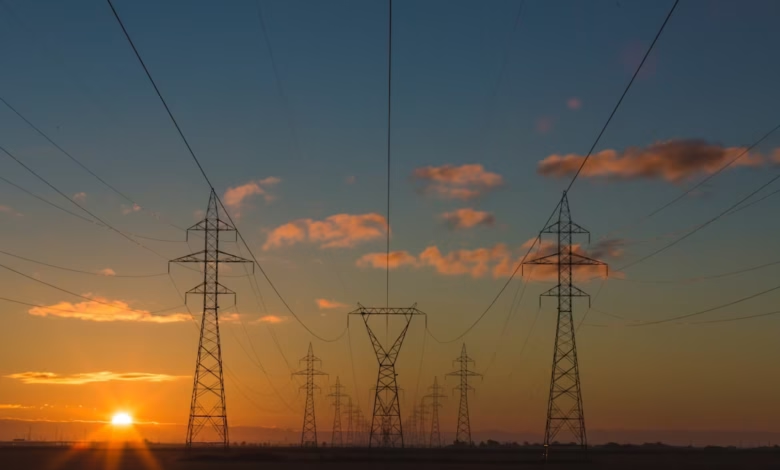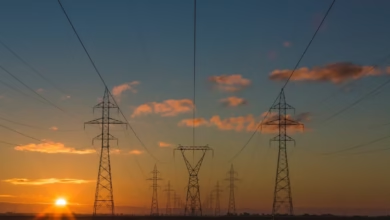Assessing the Environmental Impact of Oil: Understanding Spills, Emissions, and Sustainable Alternatives for Energy Security

The environmental impact of oil is a pressing concern that reverberates across the globe, affecting ecosystems, economies, and communities alike. From the extraction of crude oil to the complexities of oil refining and transportation, the journey of this vital resource is fraught with ecological challenges. Oil spills, emissions, and the broader implications of oil consumption contribute significantly to environmental degradation, raising critical questions about regulatory compliance and the efficacy of existing protections. As we delve into the consequences of oil spills and emissions, we will examine the resultant ecological damage and the regulatory hurdles that complicate recovery and remediation efforts. Furthermore, we will explore the future of energy security by investigating oil alternatives such as biofuels and natural gas, which promise to mitigate the environmental footprint of traditional oil dependency. In this article, we aim to provide a comprehensive understanding of how the global oil trade, marked by fluctuating oil prices and geopolitical tensions, influences not only oil market trends but also the urgent need for sustainable practices in oil field services and downstream oil operations. Join us as we unravel the intricate relationship between oil and the environment, highlighting the innovations and policies that could shape a more sustainable energy future.
- 1. Understanding the Environmental Impact of Oil: From Crude Oil Extraction to Oil Transportation
- 2. The Consequences of Oil Spills and Emissions: Examining Ecological Damage and Regulatory Challenges
- 3. Exploring Alternatives to Oil: Biofuels, Natural Gas, and the Future of Energy Security
1. Understanding the Environmental Impact of Oil: From Crude Oil Extraction to Oil Transportation
The environmental impact of oil is a complex issue that begins at the extraction phase and extends throughout the entire lifecycle of crude oil. From the moment crude oil is extracted from the earth, it poses significant risks to the environment. Oil exploration often leads to habitat destruction, especially in ecologically sensitive areas where shale oil or oil sands extraction occurs. This disruption not only affects local wildlife but can also lead to soil erosion and water contamination.
Once extracted, crude oil undergoes oil refining, a process that transforms it into usable products. While refining is essential for converting crude oil into fuels and petrochemicals, it also generates emissions that contribute to air pollution and climate change. The downstream oil processes, including oil transportation through pipelines and tankers, further amplify these risks. Accidents during transportation can result in devastating oil spills, which have long-lasting effects on marine and coastal ecosystems.
Oil market trends, driven by factors such as OPEC decisions and fluctuations in oil prices, can sometimes incentivize rapid extraction and transportation without adequate environmental safeguards. This urgency can compromise oil regulation and oil compliance standards, leading to increased environmental risks. The global oil trade relies heavily on oil supply chains that traverse delicate ecosystems, raising concerns about energy security and the ecological footprint of oil consumption.
As the demand for oil continues to grow, particularly in emerging markets, the environmental consequences become increasingly pronounced. However, there is a rising interest in oil alternatives, such as biofuels and natural gas, which promise to mitigate some of the environmental impacts associated with traditional oil usage. Innovative oil technologies, including more efficient extraction and transportation methods, are also being developed to minimize ecological damage.
Addressing the environmental impact of oil requires a multifaceted approach that includes responsible oil field services, stringent regulation, and a commitment to transitioning towards more sustainable energy sources. Investors in the oil market must also consider oil price hedging strategies that incorporate environmental risks, ensuring that their investments align with a future that prioritizes ecological integrity and energy sustainability.
2. The Consequences of Oil Spills and Emissions: Examining Ecological Damage and Regulatory Challenges
Oil spills and emissions present significant ecological challenges that extend far beyond immediate environmental damage. The consequences of these incidents can have long-lasting effects on ecosystems, wildlife, and local economies, making them a critical area of concern in the discourse surrounding the environmental impact of oil.
When crude oil is released into marine or terrestrial environments, it can devastate fragile ecosystems. Oil spills lead to the contamination of water bodies, affecting marine life and coastal habitats. Species such as birds, fish, and marine mammals suffer from exposure to toxic compounds in oil, which can lead to decreased populations and even extinction in some cases. The aftermath of such spills often requires extensive cleanup efforts, which can further disrupt local ecosystems and contribute to ecological damage.
Moreover, emissions from oil refining and transportation contribute to air pollution, which can have severe health implications for surrounding communities. The combustion of fossil fuels, including oil, releases greenhouse gases and other harmful pollutants that exacerbate climate change and poor air quality. This pollution can lead to respiratory issues, cardiovascular diseases, and other health problems for humans and wildlife alike.
Regulatory challenges complicate the management of these environmental risks. The oil market, governed by complex dynamics involving OPEC, shale oil production, and global oil trade, often prioritizes economic incentives over environmental protection. While oil regulation exists, compliance can be inconsistent, and enforcement may vary significantly between regions. This inconsistency can jeopardize effective oil spill response strategies and emissions controls.
In addition, the push for energy security often results in increased offshore drilling and oil exploration, which raises the stakes for potential ecological disasters. As the global demand for oil continues, driven by oil consumption trends and fluctuating oil prices, the need to balance energy needs with environmental protection becomes increasingly urgent. Innovations in oil technologies and a shift towards oil alternatives, such as biofuels and natural gas, may offer pathways to mitigate these impacts. However, the transition requires careful consideration of oil supply chains, oil storage, and oil pipelines to ensure that regulatory frameworks are equipped to handle the complexities of modern oil geopolitics.
In conclusion, the consequences of oil spills and emissions are far-reaching, affecting not only the immediate environment but also the broader ecological balance and community health. Addressing these challenges requires a concerted effort to enhance oil regulation, promote compliance, and explore sustainable energy alternatives while navigating the intricate landscape of oil investments and market trends.
3. Exploring Alternatives to Oil: Biofuels, Natural Gas, and the Future of Energy Security
As the world grapples with the environmental impact of oil, exploring alternatives to traditional fossil fuels is becoming increasingly crucial for ensuring energy security and mitigating ecological damage. The reliance on crude oil has long been a cornerstone of global energy consumption, but with rising oil prices and the pressing need for sustainable solutions, the focus has shifted toward viable alternatives like biofuels and natural gas.
Biofuels, derived from organic materials, present a promising opportunity for reducing dependence on oil. They can be produced from a variety of sources, including agricultural waste, algae, and even dedicated energy crops. By integrating biofuels into our energy mix, we can decrease fossil fuel consumption while simultaneously supporting local economies and reducing greenhouse gas emissions. The development of advanced biofuel technologies is essential for enhancing efficiency and scalability, making them a key player in the future of energy security.
Natural gas is another alternative gaining traction as a cleaner energy source. Often touted as a bridge fuel, natural gas emits significantly fewer pollutants compared to crude oil and coal when burned for energy. The expansion of natural gas infrastructure, including oil pipelines and storage facilities, is vital for transitioning to a low-carbon economy. Furthermore, the shale oil boom has led to an increase in natural gas production, which can help stabilize oil market trends by providing a more flexible energy supply. As countries look to diversify their energy portfolios, natural gas could play a critical role in reducing vulnerability to oil supply chain disruptions and geopolitical tensions related to oil reserves.
Looking ahead, the future of energy security will hinge on the successful integration of these oil alternatives into our existing frameworks. Policymakers must prioritize oil regulation and compliance to ensure that the transition to biofuels and natural gas is both environmentally sustainable and economically viable. Investments in oil field services and oil technologies that promote cleaner extraction and processing will be essential in minimizing the environmental impact of oil while still meeting global energy demands.
In conclusion, the shift towards biofuels and natural gas is vital in addressing the environmental impact of oil and securing a sustainable energy future. By investing in innovative solutions and navigating the complexities of oil geopolitics, we can work towards a more resilient energy landscape that reduces reliance on oil and mitigates ecological harm.
In conclusion, the environmental impact of oil is a pressing concern that cannot be overlooked as we navigate the complex landscape of energy consumption and production. From the extraction of crude oil to the challenges posed by oil transportation and refining, the consequences of oil spills and emissions have far-reaching implications for our ecosystems and regulatory frameworks. As we witness the fluctuations in oil prices and market trends dictated by entities like OPEC and the dynamics of shale oil and offshore drilling, it becomes increasingly clear that a shift towards sustainable alternatives is essential.
Exploring biofuels and natural gas presents viable solutions that not only address immediate environmental concerns but also contribute to long-term energy security. By investing in innovative oil technologies and adhering to stringent oil regulation and compliance measures, we can mitigate the adverse effects of the oil industry while ensuring a responsible transition to oil alternatives. The future of energy lies in our ability to balance the demands of the global oil trade with the urgent need to protect our planet. As we consider our role in oil investing and the broader implications of oil geopolitics, it is imperative to prioritize sustainable practices that safeguard our environment for generations to come.
By understanding the intricate relationships within oil supply chains and the challenges of oil field services, we can better comprehend the environmental impact of oil and make informed decisions that lead to a cleaner, more sustainable future.





